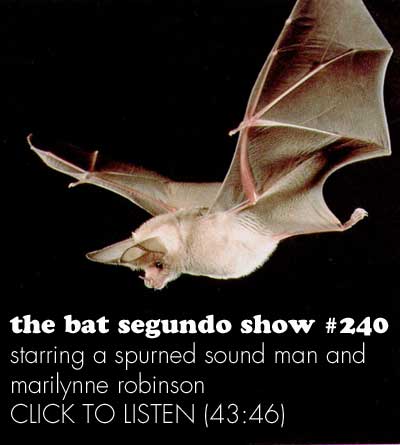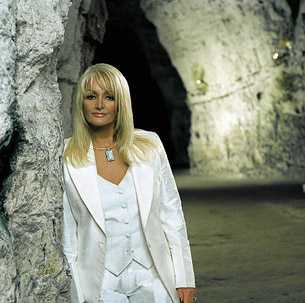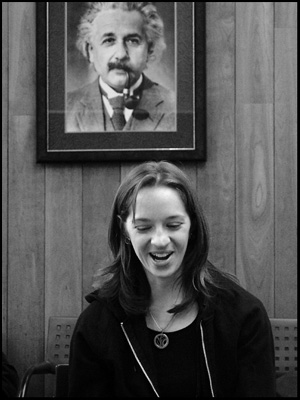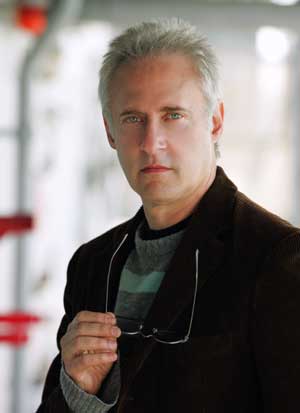Neal Stephenson appeared on The Bat Segundo Show #245. Stephenson is most recently the author of Anathem. It is not known whether or not he “likes cake a lot.”
Condition of Mr. Segundo: He likes cake a lot.
Author: Neal Stephenson
Subjects Discussed: Seven as the ideal number of guests for dinner, William Gibson, the shift from the near future to the past, Cryptonomicon and the Baroque Cycle, science fiction about the alternative present, the various manners in which one interprets information as forms of discipline, Kurt Godel’s life at the Institute for Advanced Study, Platonism, Edmund Husserl, the Kantian influence in Anathem, units of measurement, Gene Wolfe, the use of “runcible,” using very old words to avoid the high tech feel, “aut” and auto-da-fe, devising quasi-Latin lingo, Riddley Walker, learning new words as an essential part of the experience of literature, considering the general reader, devising a script that went through the entire text to determine how many words were invented, concocting an intuitive vernacular, cognitive philosophy concerning the fly, the bat, and the worm inspired by Husserl, reader accessibility, My Dinner with Andre, the danger of getting caught up in an invented world, the snowscape journey as a side quest, finding humor in unexpected places, Ras as the anti-Enoch Root, Robert Heinlein’s YA novels, Ras’s perception of music, music and mathematics, literal and figurative meanings, Max Tegmark’s The Mathematical Universe, creating a metaverse and happy accidents, being “family-based” and types of relationships within the Avout, Laura Miller’s suggestion that Anathem is “a campus novel,” use of the first-person, narrative constraints, criticism about women as nurturers, female characters, and the risk of writing books about ideas.
EXCERPT FROM SHOW:
 Correspondent: Going back to the idea of the general reader, or the common reader — whatever we want to call the audience here — the philosophical proposition involving the fly, the bat, and the worm expressing basic cognitive abilities, and how cognitive abilities come together so that humans are a higher form of animal than other animals, this was a very clear way of expressing this particular concept of individual senses. And I’m wondering if this was something that you concocted. Or that you took from Kant. Because I actually tried to find a philosophical precedent for this as well.
Correspondent: Going back to the idea of the general reader, or the common reader — whatever we want to call the audience here — the philosophical proposition involving the fly, the bat, and the worm expressing basic cognitive abilities, and how cognitive abilities come together so that humans are a higher form of animal than other animals, this was a very clear way of expressing this particular concept of individual senses. And I’m wondering if this was something that you concocted. Or that you took from Kant. Because I actually tried to find a philosophical precedent for this as well.
Stephenson: It’s more from [Edmund] Husserl. So Husserl was an amazing guy who could just sit in his office and look at a copper ashtray, and then write at great length about all of the processes that went on in his mind when he was perceiving that ashtray, and recognizing it from one moment to the next as being the same object. And so he’s got a number of lengthy books about this, which, as you can imagine, are pretty hard to read. So the content of the dialogue, or the parable you mention — the fly, the bat, and the worm — really comes from him. But it’s me trying to write a somewhat more accessible version of similar ideas.
Correspondent: So you really wanted to be accessible in some sense, it seems to me.
Stephenson: In some sense, yeah.
Correspondent: Well, what sense exactly?
Stephenson: (laughs) Well…
Correspondent: If the reader doesn’t matter and, at the same time, there’s this accessibility here, it seems…what’s the real story? (laughs)
Stephenson: Oh no. The reader matters. The criterion is very simple. It’s got to be a good yarn. If it’s not a good yarn, then the whole enterprise fails. So I think that to have a good yarn, you’ve got to have characters that people are interested in. And they’ve got to get into situations that make for a good story. It’s okay to stop the action and have them sit down and have an interesting conversation. You know, for some reason, I always go back to the movie, My Dinner with Andre, which is a long movie consisting of two guys just sitting there talking with each other. But it’s a completely engaging and fascinating movie. That’s kind of an existence proof that you can build a good yarn that consists largely of people just having conversations. And so that was kind of my guiding — that was my guideline, I guess you could say, for trying to work that material in.
BSS #245: Neal Stephenson (Download MP3)
Listen: Play in new window | Download


 Correspondent: I wanted to ask you about the tale of the prodigal son, which of course comes from Luke 15:11. The onus of guilt in that parable, however, falls largely on the son. Specifically, the quote is “Father I have sinned against heaven, and before thee / And am no more worthy to be called they son; make me as one of thy hired servants.” But Jack, he calls his father “Sir.” Not “Dad.” Although there’s a slight discrepancy near the end. He works on the DeSoto of his own accord. He’s often summoned to play on the piano and the like, and also work in the garden. But he’s sometimes an unapologetic sinner. And other times, he drowns his sorrows in alcohol. So the interesting question here about the prodigal son is: The framework of the Scriptures is clearly there in this book, but I’m curious as to when you decided to launch away from that. Likewise, was this actually a starting point? Or was it an intuitive process of trying to obvert what we know about that particular story from Luke?
Correspondent: I wanted to ask you about the tale of the prodigal son, which of course comes from Luke 15:11. The onus of guilt in that parable, however, falls largely on the son. Specifically, the quote is “Father I have sinned against heaven, and before thee / And am no more worthy to be called they son; make me as one of thy hired servants.” But Jack, he calls his father “Sir.” Not “Dad.” Although there’s a slight discrepancy near the end. He works on the DeSoto of his own accord. He’s often summoned to play on the piano and the like, and also work in the garden. But he’s sometimes an unapologetic sinner. And other times, he drowns his sorrows in alcohol. So the interesting question here about the prodigal son is: The framework of the Scriptures is clearly there in this book, but I’m curious as to when you decided to launch away from that. Likewise, was this actually a starting point? Or was it an intuitive process of trying to obvert what we know about that particular story from Luke?
 Correspondent: Going back to Wings, I actually wanted to talk about “Crying in Berlin.” This song, out of all the songs that I’ve listened to of yours, sounds the most like a James Bond song. And I do know the Hindustan Times reported in 2006 that the only thing that could bring you out of retirement was recording a James Bond theme of some sort. I’m wondering if you’ve considered approaching the Bond producers to sing a song just as you called up and contacted [Jim] Steinman, and said, “Hey, I want you to go ahead and produce this particular album.”
Correspondent: Going back to Wings, I actually wanted to talk about “Crying in Berlin.” This song, out of all the songs that I’ve listened to of yours, sounds the most like a James Bond song. And I do know the Hindustan Times reported in 2006 that the only thing that could bring you out of retirement was recording a James Bond theme of some sort. I’m wondering if you’ve considered approaching the Bond producers to sing a song just as you called up and contacted [Jim] Steinman, and said, “Hey, I want you to go ahead and produce this particular album.”
 Correspondent: You’ve actually dined on squab. You allude to the fact that it’s delicious, that it’s dark meat. But as a carnivore and somewhat of a curio, I had to ask whether it tasted like chicken or like duck or like turkey. I mean, you didn’t go into specifics here. And I’m wondering if the experience was possibly unsettling or you couldn’t convince yourself completely that it was delicious. Because you also sympathized with these birds. But what of this?
Correspondent: You’ve actually dined on squab. You allude to the fact that it’s delicious, that it’s dark meat. But as a carnivore and somewhat of a curio, I had to ask whether it tasted like chicken or like duck or like turkey. I mean, you didn’t go into specifics here. And I’m wondering if the experience was possibly unsettling or you couldn’t convince yourself completely that it was delicious. Because you also sympathized with these birds. But what of this?
 Correspondent: I should observe that you grew up in Houston.
Correspondent: I should observe that you grew up in Houston.